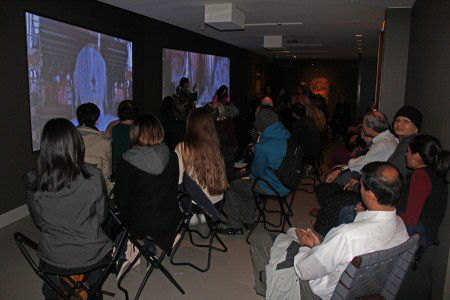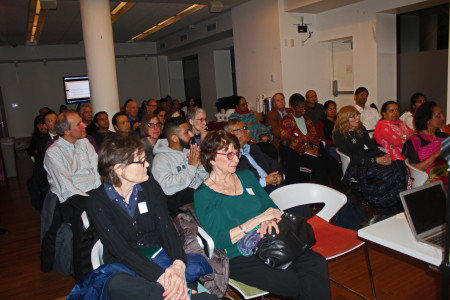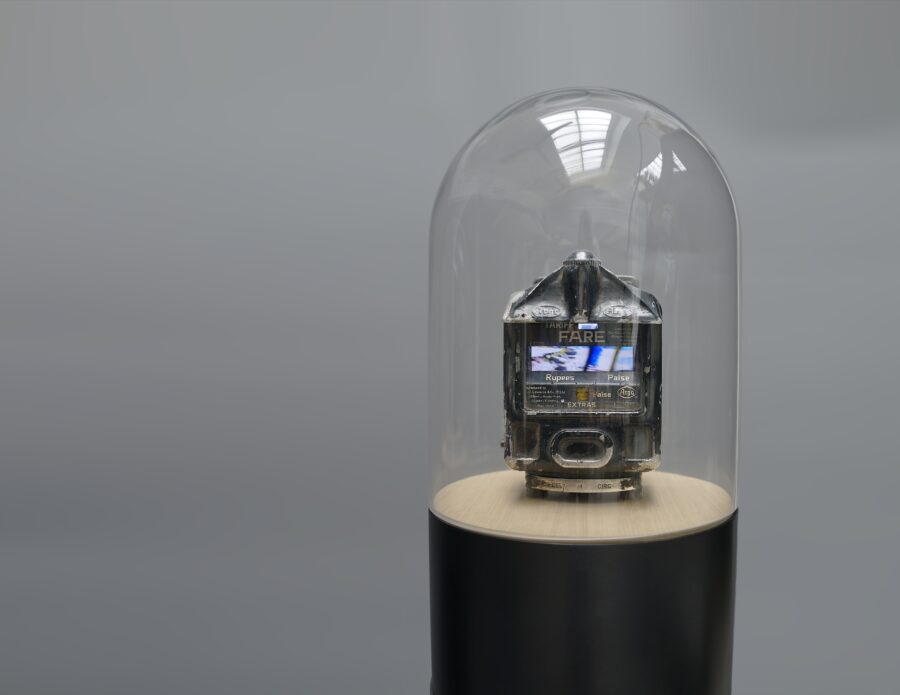


For the six million followers of the Jain religion around the world, April is a special month. It is the month in which Lord Mahavira, the spiritual head of the Jain faith, was born in the sixth century BCE in India. According to the tenets of Jainism, Lord Mahavira attained a state of perfection or enlightenment through meditation and self-realization and taught others to cross over from ignorance into nirvana.
In honor of Mahavira’s birthday in 2016, the Rubin hosted an event with community partner India Home, one of the only nonprofits in the New York area to offer cultural services to South Asian seniors.

Tashi Chodron, assistant manager of Himalayan Cultural programs, started off the event in the Museum’s Sacred Spaces exhibition. She introduced audience members to the awe-inspiring video installation depicting a fabled Jain ceremony that takes place once every 12 years in Sravanabelagola in southern India. As part of the ritual, a 58-foot, 8-inch tall idol of Bahubali, the son of the first Jain Tirthankara, is anointed by pouring millions of gallons of milk, yogurt, and sugar cane juice over the statue’s head, along with other holy offerings like saffron, vermilion, and flowers. The idol, which is the tallest freestanding stone statue in the world, has been worshiped by millions of Jain pilgrims since it was built in 938 AD.
The celebration continued with members of India Home chanting the Navkar mantra, or Namokar mantra, which is the most significant mantra of the Jain faith. The singers chanted three times in accordance with tradition.

The celebration traveled to the Museum’s education center, where Meera Nair of India Home presented a short presentation on Mahavira’s life as a prince, his renunciation of worldly life, and his subsequent enlightenment. The presentation also touched upon the five main tenets of Jainism, especially ahimsa (nonviolence), a philosophy that informs every aspect of Jain life, including their diets.
Shruthi Tiwari of India Home spoke about the interesting Jain approach to food which includes injunctions against eating root vegetables like potatoes and garlic. After a few more activities, including a discussion with Chandrakant Sheth and Vimla Shah, two members of India Home who are practicing Jains, the program concluded with another recital of the Namokar. Attendees thanked the performers for an informative and “enlightening” evening.

Rubin Museum
150 W. 17th St., NYC
Get the latest news and stories from the Rubin, plus occasional information on how to support our work.